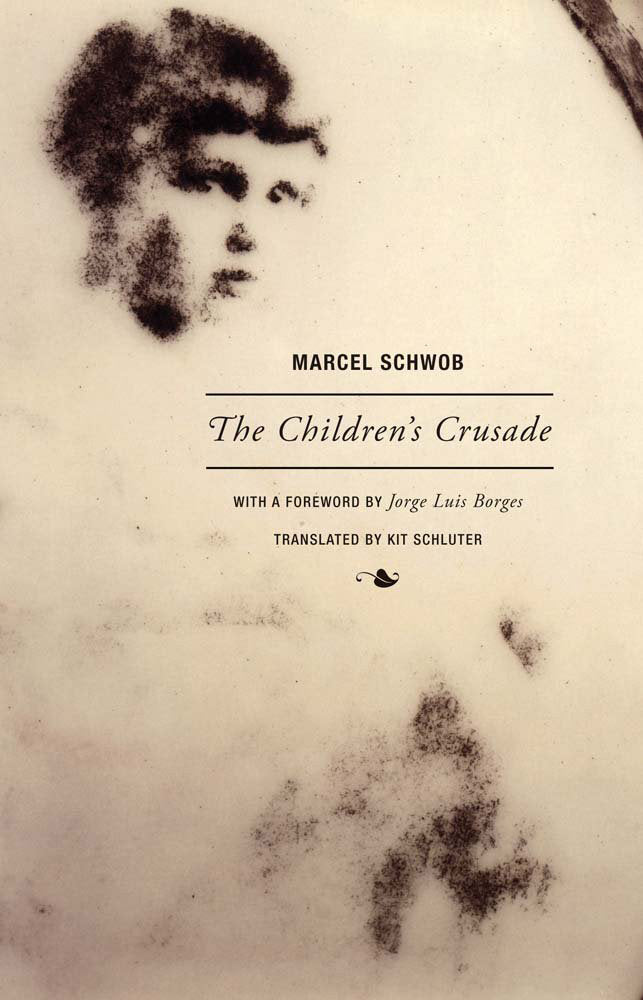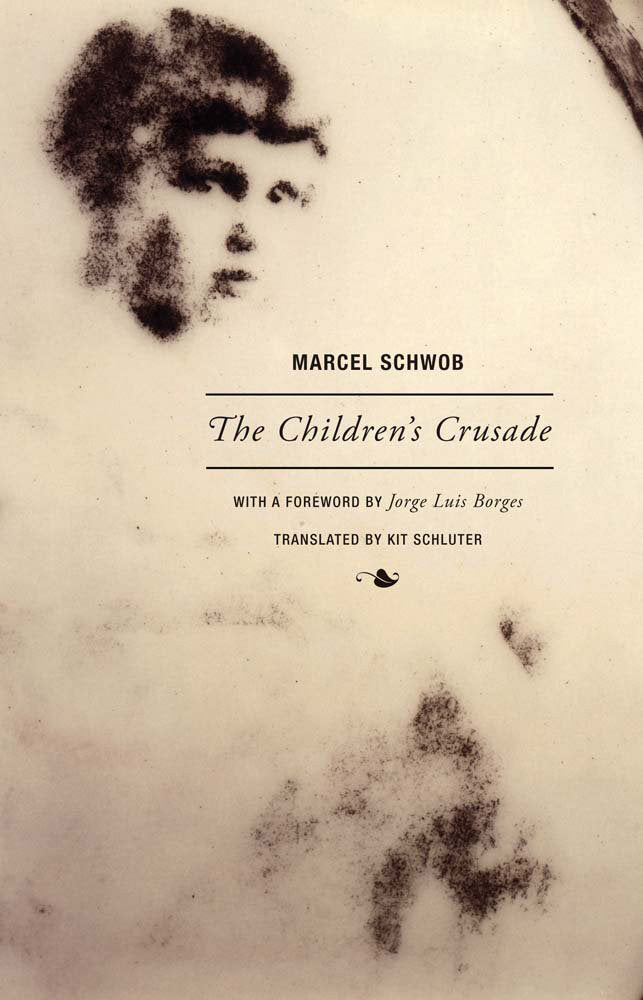The Children’s Crusade
The Children’s Crusade
Marcel Schwob
Couldn't load pickup availability
Foreword by Jorge Luis Borges / Translated by Kit Schluter / April 2018 / 4.5 x 7, 56 pp. / 978-1-939663-35-1
“I’ve just read Marcel Schwob’s The Children’s Crusade twice over, with deep admiration and reverence. I am profoundly moved: what a work! And to think I’d never heard the name of Marcel Schwob. Who is he?”—Rainer Maria Rilke
Marcel Schwob’s 1896 novella The Children’s Crusade retells the medieval legend of the exodus of some 30,000 children from all countries to the Holy Land, who traveled to the shores of the sea, which instead of parting to allow them to march on to Jerusalem, instead delivered them to merchants who sold them into slavery in Tunisia or to a watery death. It is a cruel and sorrowful story mingling history and legend, which Schwob recounts through the voices of eight different protagonists: a goliard, a leper, Pope Innocent III, a cleric, a qalandar, and Pope Gregory IX, as well as two of the marching children, whose naïve faith eventually turns into growing fear and anguish.
Though it is a tale drawn from the early thirteenth century, Schwob presents it through a modern framework of shifting subjectivity and fragmented coherency, and its subject matter and its succession of different narrative perspectives has been seen as an influence on and precursor to such diverse works as Alfred Jarry’s The Other Alcestis, Ryūnosuke Akutagawa’s “In a Grove,” William Faulkner’s As I Lay Dying, and Jerzy Andrzejewski’s The Gates of Paradise. It is a tale told by many yet understood by few, a mosaic surrounding a void, describing a world in which innocence must perish.
Marcel Schwob (1867–1905) was a scholar of startling breadth and an incomparable storyteller. A secret influence on generations of writers, from Guillaume Apollinaire and Jorge Luis Borges to Roberto Bolaño, Schwob was as versed in the street slang of medieval thieves as he was in the poetry of Walt Whitman. His allegiances were to Rabelais and François Villon, Robert Louis Stevenson and Edgar Allan Poe. Paul Valéry and Alfred Jarry both dedicated their first books to him, and in doing so paid tribute to the author who could evoke both the intellect of Leonardo da Vinci and the anarchy of Ubu Roi. He was also the uncle of Lucy Schwob, better remembered today as the Surrealist photographer Claude Cahun.
Press
“[a] hauntingly intimate book that somehow combines moralism, mystery and the concreteness of a lived account...”
—Martin Riker, The Wall Street Journal
“There’s a lot of heart and humanity in this little book. The story is both wondrous and tragic. I can’t recommend it enough.”
—Tara Cheesman, Bookriot
“In his only partial distrust of language, Schwob himself proved not quite pure. Yet something of the effort of rigorous synthesis, ‘fatal et mathématique,’ that Mallarmé attributed to his own Hérodiade suggests itself in these taut pages, eight disquietingly balanced tales culled from a veritable nest of medieval narrative. Here we should come to understand, by translation, intensification. Didn’t Benjamin after all demand that the translator extend his own language through the other? Will you join me for a moment in the dream-reality of the living poet’s prose? Could it really be that I prefer Schluter’s to the original?”
—Dylan Byron, Fanzine
“If it is a story about innocence and power, it is also not a story in which innocence is conflated with powerlessness. That the children lose does not make them passive; that they are not passive does not mean they are not innocent. Part of the struggle is over what their attempt to go to Jerusalem means; if it is insanity, or disobedience, or something else.”
—B. D. McClay, Commonweal


